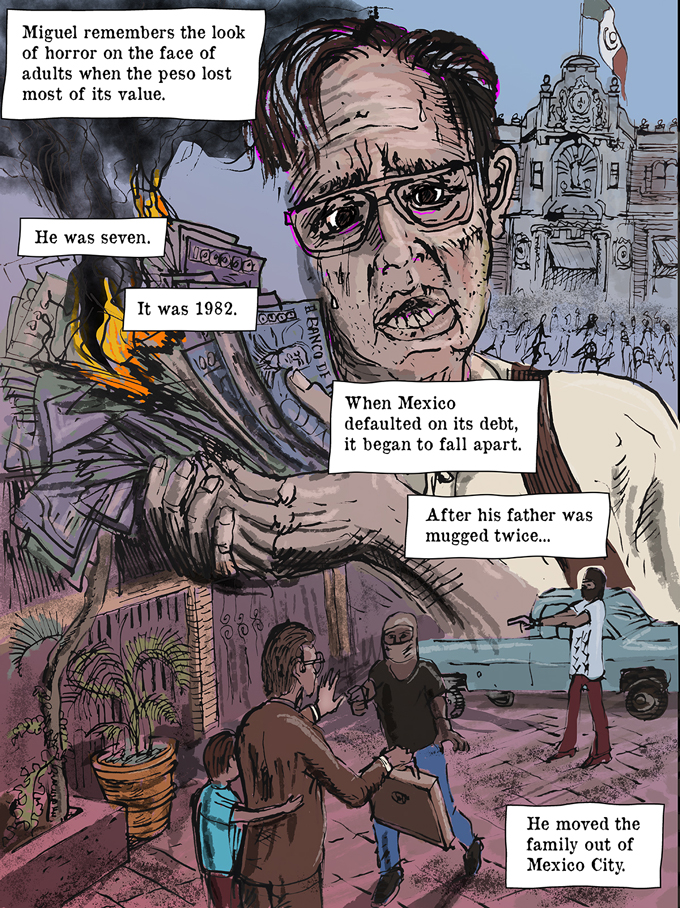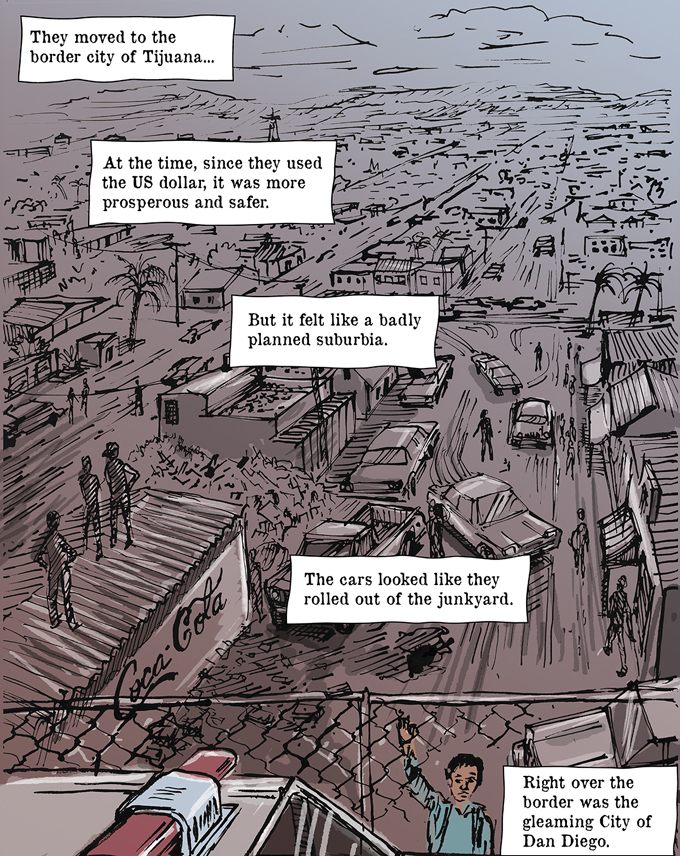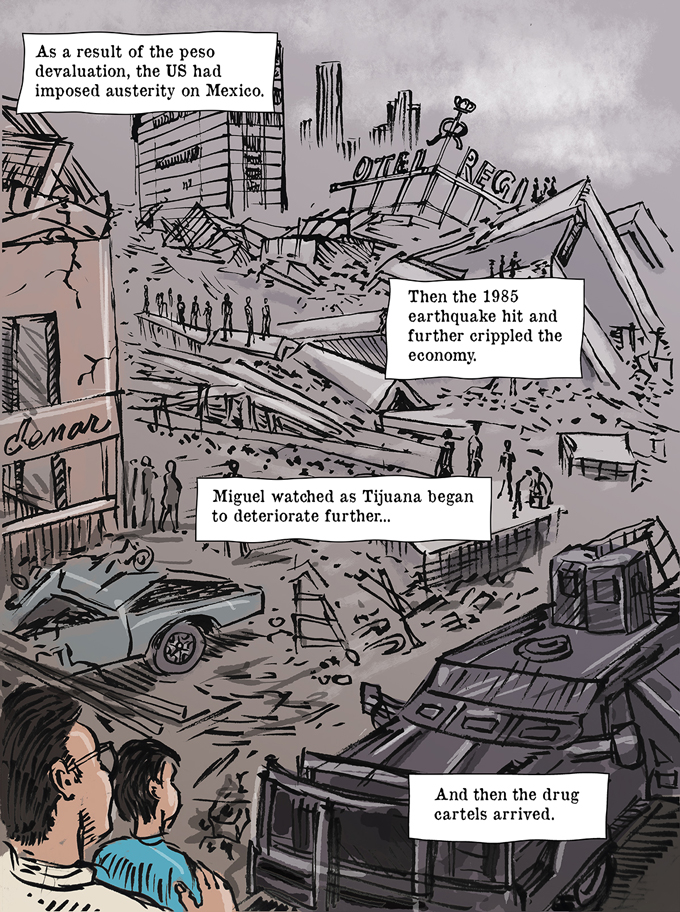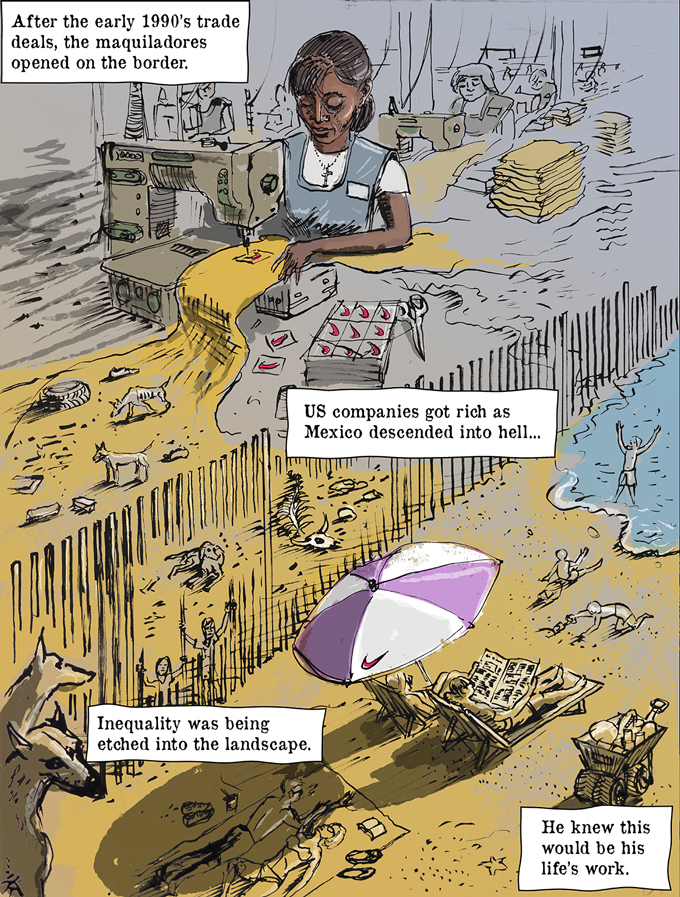
New York 2044: Miguel Robles-Duran
Reported from the imagination of urbanist, Miguel Robles-Durán.
Scroll down to see Miguel’s real estate coming of age story in comic form.
WHY HOUSING IS NO LONGER A GOOD INVESTMENT
New York, NY – May 5, 2044 – Forget skyrocketing prices. Forget property ownership as a path to generational wealth. In today’s New York City, homeownership means stability, not investment. A decade of progressive legislation is now bearing fruit, and we are witnessing a fundamental change in the relationship between inhabitants of our city, and their home—a thing which in the recent past was reframed as real estate.
Read More
So forget massive mortgages and the stress of a volatile market. Affordable housing is finally a reality and here’s what it looks like in New York. It looks like co-ops.
Luxury co-ops used to be investment vehicles, just like single family homes or condos. Today, “cooperative housing trusts” prioritize community and affordability. These collectives, formed by residents themselves, purchase land from the city’s land banks at significantly reduced rates. There’s a catch, though: this land is strictly for those who intend to live in the building they build, not for flipping or market manipulation.
“The whole idea was to take housing out of the investment game,” explains Congresswoman Li Zhou, a champion of the city’s housing reforms. “We knew once we could do that, many possibilities for affordable housing would open. But while they were still treated as investment assets, we saw capitalism preventing almost all the affordable options—just like in a casino, the market always wins—in this case it was the Real Estate Board of NY (REBNY). But homes are for living in, not for gambling on.”
“The city’s land bank program is a crucial piece of the puzzle,” says Housing Commissioner Miguel Robles-Durán. “Underutilized public land is transformed into opportunities for these collectives. Think a group of nurses forming a co-op in Harlem, or a collective of artists creating a vibrant live-work space in Brooklyn. These collectives navigate the application process, demonstrating their commitment to the community and responsible ownership.”
Once approved, the collective essentially enters a long-term rent-to-own agreement with the city. Over a set period, typically 30 years, they pay a predictable monthly fee. At the end of this term, they collectively own the building, with only property taxes to worry about.
Sure, there are waitlists and navigating the application process can be a hurdle. But for residents like David Kim, a member of the “Sunset Stacks” co-op in Queens, the benefits are undeniable. “We may not own the land itself,” he says, “but we have a stable, secure home we helped create. We are bringing up a new generation in the Stacks, eating food we grow here, and since it’s affordable, we can make other investments, we can afford to travel, and we most of all, we are surrounded by a diverse array of folks who don’t feel like the city is pushing them out, so the vibes are great. That’s worth more than any investment portfolio.”
Miguel’s Story
Miguels’s real estate coming of age story in comic form, by Noah Fischer.




Miguel Robles-Durán is an urbanist, theorist, designer, educator and podcaster. He is Associate Professor of Urbanism at The New School, and co-founder of the non-profit Cohabitation Strategies, a cooperative for socio-spatial research, design and development based in Rotterdam, Netherlands, and New York City, US.
